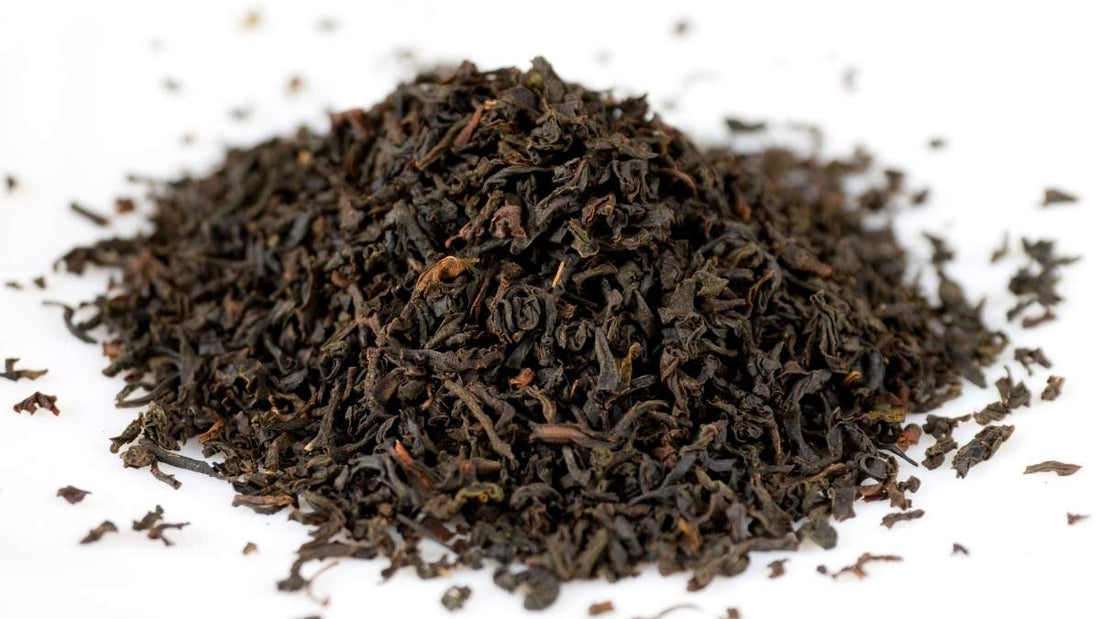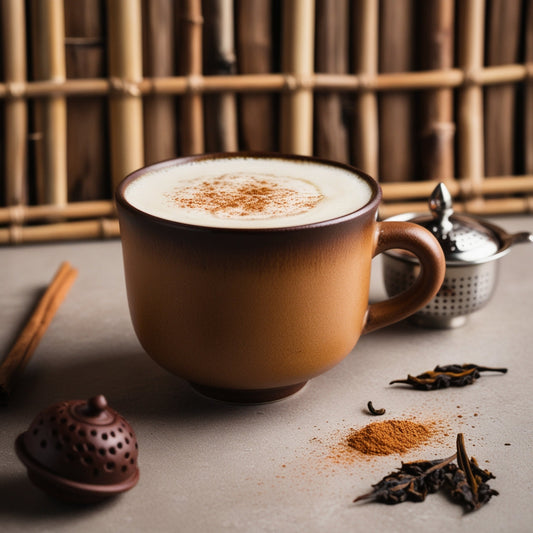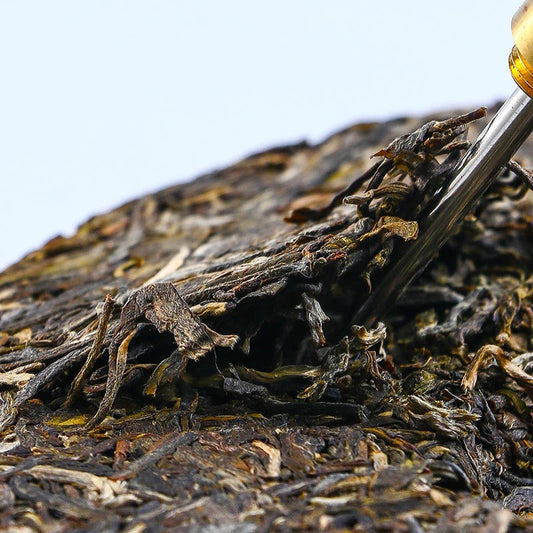Overview
Imagine holding a steaming cup of dark, aromatic liquid, its rich flavours embracing your senses. This cup holds not just a beverage, but centuries of history, trade, and culture. We are talking about black tea, a drink that has shaped economies, cultures, and even political movements across the world. In this article, we will take a deep dive into the historical journey of black tea, its cultural impact, and how it became a global phenomenon.
Table of Content
- Introduction
- What is Black Tea?
- The Historical Journey of Black Tea
- The Role of Black Tea in Global Trade
- The Spread of Black Tea Across Continents
- Black Tea's Impact on Culture and Society
- Health Benefits of Black Tea
- Conclusion
- Q&A Section
Introduction
Black tea is more than just a popular drink; it’s a cultural artefact, a historical marvel, and a health elixir. In this article, we will explore the origins of black tea, tracing its path from ancient China to its pivotal role in global trade and its spread across continents. We’ll also discuss the cultural significance of black tea, its impact on society, and the scientifically-backed health benefits it offers. By the end, you’ll have a comprehensive understanding of the importance of black tea, both historically and in modern times.
What is Black Tea?
Black tea is a fully oxidised tea, known for its dark colour and robust flavour. The leaves undergo a process of withering, rolling, fermenting, and drying, which allows the tea to develop its characteristic taste. Unlike green or white teas, black tea is stronger in flavour, with varying degrees of bitterness, maltiness, and even sweetness depending on its origin and preparation.
Black tea comes from the Camellia sinensis plant, the same plant that produces green, white, and oolong teas. What differentiates black tea is the fermentation process, where the leaves are exposed to oxygen, causing them to darken and develop a stronger flavour.
The Historical Journey of Black Tea
Black tea's origin can be traced back to China during the Ming Dynasty (1368–1644). While green tea was already a staple, black tea was an accidental discovery. As tea traders sought ways to preserve the tea leaves during transportation, they allowed the leaves to oxidise fully, thus creating black tea. It was first produced in the Wuyi Mountains of Fujian Province, and this darker, oxidised tea quickly gained popularity due to its longer shelf life and bold flavour.
The shift to black tea production happened as trade routes expanded, and traders needed a tea that could withstand long journeys without spoiling. This made black tea an ideal commodity for global trade.

The Role of Black Tea in Global Trade
Black tea’s role in global trade cannot be overstated. By the 17th century, European traders, especially the British East India Company, began importing black tea in large quantities. Tea quickly became a fashionable beverage in England, and demand skyrocketed. The British, recognising tea’s profitability, established vast tea plantations in colonies like India and Sri Lanka (then Ceylon).
The global demand for black tea led to the creation of intricate trade routes, linking the East and the West. The famous "Tea Horse Road" in China and the trade routes across the seas played pivotal roles in transporting black tea. In Britain, black tea became such a popular commodity that it even played a role in shaping historical events like the Boston Tea Party in 1773, an act of defiance that contributed to the American Revolution.
The Spread of Black Tea Across Continents
From China, black tea spread to neighbouring countries like Japan and Korea. But it was in India and Sri Lanka where black tea production flourished on an industrial scale. British colonists, recognising the potential for tea cultivation in Assam, India, began cultivating black tea extensively. Assam black tea, with its malty, rich flavour, became one of the most popular types of black tea worldwide.
In Sri Lanka, formerly known as Ceylon, black tea plantations transformed the country's economy. Ceylon black tea became known for its unique, citrusy flavour and quickly became a staple in international markets.
In the West, black tea was embraced not only as a beverage but as a social and cultural experience. Afternoon tea rituals in Britain, for example, became a cherished tradition, symbolising sophistication and elegance.
Black Tea's Impact on Culture and Society
Black tea has transcended its role as a beverage to become a symbol of cultural identity and social status. In England, "tea time" is more than a meal—it is a cultural institution. The practice of afternoon tea, introduced by Anna, the Duchess of Bedford, in the early 19th century, became a widely embraced tradition among British aristocrats and commoners alike. Black tea was central to this ritual, often accompanied by finger sandwiches, scones, and pastries.
In China, black tea plays a significant role in traditional ceremonies, symbolising hospitality and respect. Black tea is also closely associated with the famous Gongfu tea ceremony, where tea is brewed in a ritualistic and methodical way to bring out the best flavours.
The global reach of black tea is evident in how it has been incorporated into different cultures, from the chai stalls of India to the iced sweet teas of the American South. It has shaped societies, bringing people together in rituals of hospitality and warmth.

Health Benefits of Black Tea
Beyond its rich cultural and historical significance, black tea also offers numerous health benefits, many of which are backed by scientific research. Here are a few key health advantages:
- Rich in Antioxidants: Black tea is loaded with polyphenols, including catechins and flavonoids, which act as antioxidants. These compounds help neutralise free radicals in the body, reducing oxidative stress and preventing cell damage.
- Heart Health: Several studies suggest that regular consumption of black tea can lower the risk of cardiovascular diseases. A study published in the European Journal of Clinical Nutrition found that black tea drinkers had lower levels of LDL (bad) cholesterol, which is associated with heart disease.
- Improved Mental Alertness: Thanks to its caffeine content, black tea can improve mental focus and alertness. L-theanine, an amino acid found in black tea, promotes relaxation without causing drowsiness, creating a balanced sense of focus.
- Digestive Health: The tannins in black tea can have a calming effect on the digestive system, helping to relieve common issues like bloating or indigestion.
- Weight Management: Black tea has been shown to increase metabolism, making it a great addition to a weight management plan.
Conclusion
Black tea is not just a beverage; it is a part of the world’s history and culture. From its humble beginnings in China to becoming a global phenomenon, black tea has influenced trade, economies, and even societal rituals. Whether it’s the traditional tea ceremonies of China or the afternoon tea culture in Britain, black tea continues to be a beloved drink for people across different countries and walks of life.
But beyond its cultural significance, black tea offers real health benefits that can improve your well-being. From its antioxidant properties to its ability to support heart health and improve mental alertness, black tea is a great choice for anyone looking to enjoy a tasty, healthy drink.
If you're a tea lover or someone looking to explore the rich world of teas, why not take it a step further? Pu-erh tea, another variety with a unique history and many of the same health benefits as black tea, offers a distinct experience. At Puerh Craft, you’ll find authentic, carefully curated Pu-erh teas that not only taste great but also promote sustainability. So, give it a try and explore a new chapter in the world of tea.
Q&A Section
-
Where did black tea originate?
Black tea originated in China, specifically during the Ming Dynasty, as a way to preserve tea leaves for long-distance trade. -
How did black tea become popular in Europe?
Black tea became popular in Europe through the efforts of the British East India Company, which imported large quantities of tea from China, later growing it in India and Sri Lanka. -
What are the main differences between black tea and green tea?
The primary difference lies in the oxidation process. Black tea is fully oxidised, giving it a darker colour and stronger flavour, while green tea is not oxidised and has a lighter, more vegetal taste. -
Does black tea have more caffeine than green tea?
Yes, black tea generally has more caffeine than green tea, making it a preferred choice for those seeking a stronger stimulant effect. -
Can black tea help with weight loss?
Studies suggest that black tea can boost metabolism and aid in weight management when consumed as part of a balanced diet.






